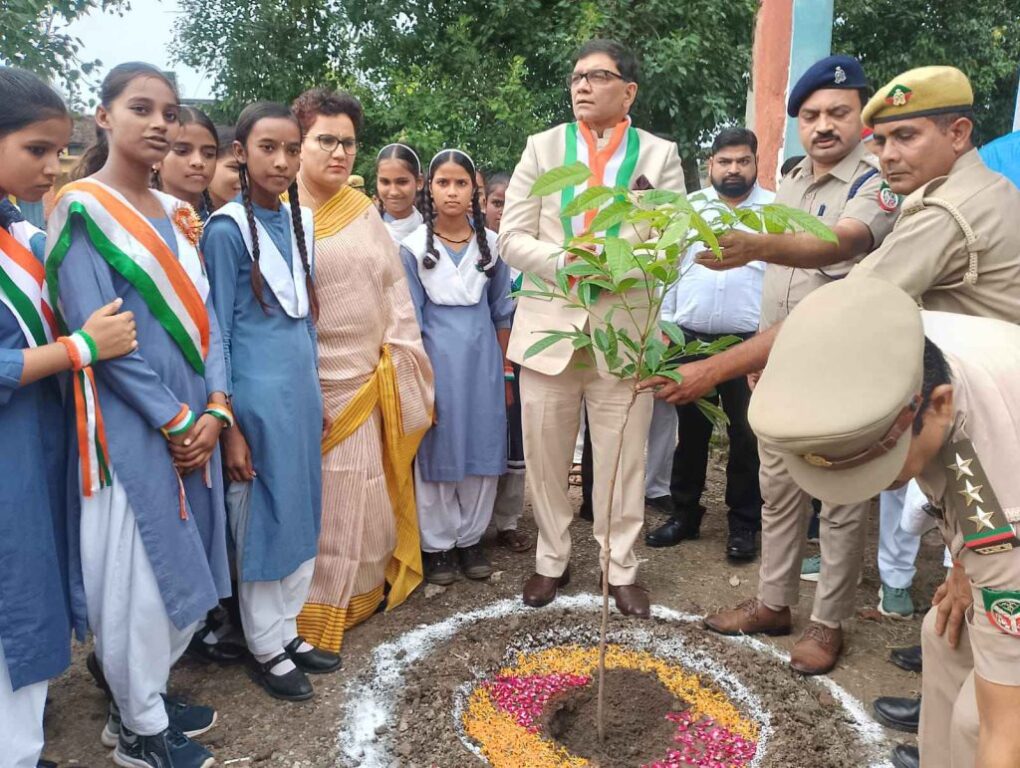In the heart of the Tarai region, where lush forests meet sprawling farmlands, an extraordinary transformation is unfolding in the classrooms of Pilibhit. For decades, children in government primary schools had no desks or chairs. They sat cross-legged on cold cement floors, or worse, under trees in crumbling courtyards, trying to study in conditions that stifled learning and dignity.
That bleak reality changed when 2014-batch IAS officer Gyanendra Singh took charge as District Magistrate (DM). Within months, his mission reshaped not just classrooms but the future of more than 90,000 children across 903 schools.
The Spark That Lit a Movement
During a school inspection, DM Singh was shaken to see children sitting on the bare ground. “When I asked why, the teachers told me no furniture had ever arrived,” he recalls. The answer, though routine, struck him as unacceptable.
Government funds had been delayed for years, and bureaucratic hurdles had frozen progress. Instead of waiting, Singh acted decisively. He tapped village panchayat development funds, rallied support from CSR initiatives, and launched the School Chalao Abhiyan—a pledge that every child in Pilibhit would have a desk and chair.

From Panchayats to People: A Collective Effort
The mission quickly grew into a community movement. Village heads were mobilized, and district officers from multiple departments—Basic Shiksha Adhikari (BSA), Assistant BSA, DPRO, and CDO—were deployed to ensure no school was left behind.
“The first duty of the village head is to make the school of his village beautiful,” Singh firmly told panchayat leaders. Soon, villages across Pilibhit took pride in rebuilding their schools, contributing funds, labor, and local resources.
Despite hurdles like monsoon floods and production delays, the district pushed forward. By Diwali, nearly every school was expected to be fully furnished.
Beyond Furniture: Restoring Dignity and Cleanliness
For Singh, this mission was not about furniture alone. He envisioned schools as centers of community pride. Alongside desks and chairs came efforts to improve cleanliness, infrastructure, and student well-being.
He revived Gram Sachivalayas—mini secretariats in each panchayat where health, police, and administrative officers meet weekly to resolve issues. He also rejuvenated youth and women’s groups like the Yuvak Mangal Dal and Mahila Mangal Dal, giving them a role in education, sports, and welfare.
“Change happens when neglected responsibilities are prioritized,” Singh says.
A Legacy of Hope
Today, Pilibhit’s classrooms echo not with silence on bare floors but with the hum of children seated at proper desks, their posture and enthusiasm transformed. Teachers report improved attentiveness, while parents say they feel respected seeing their children study in dignified conditions.
What began as one officer’s determination has become a district-wide movement of hope, dignity, and renewed faith in public education.
For the 90,000 children of Pilibhit, the gift of a desk and chair is more than furniture—it is a seat at the table of opportunity.


